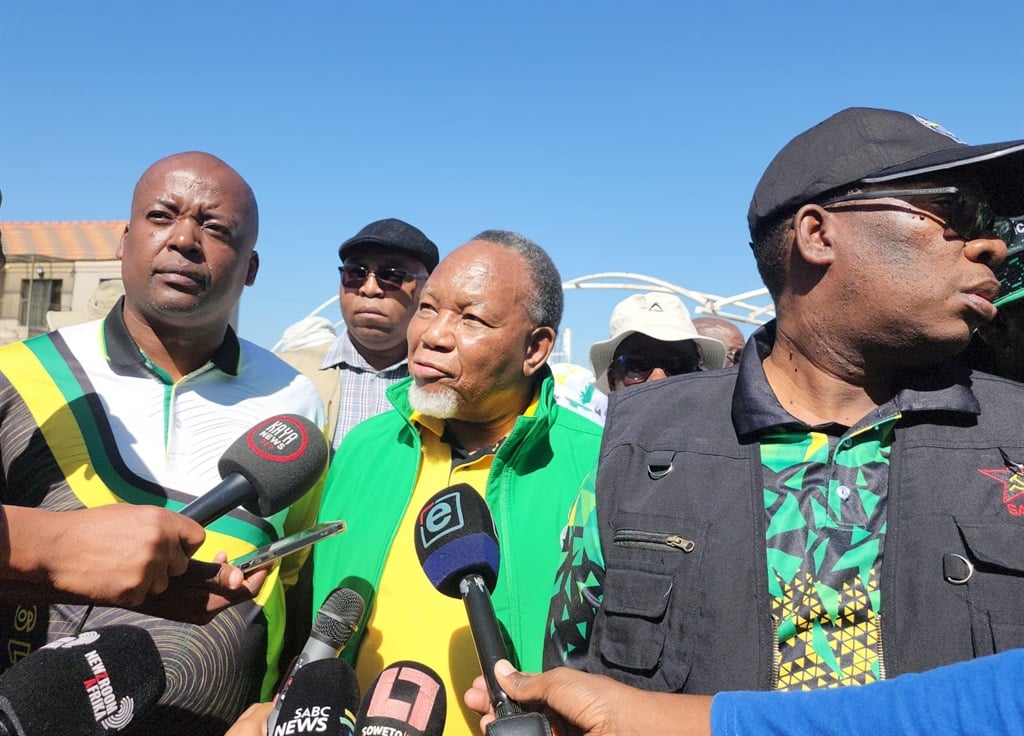Gordon Brown slams export of ’10 million’ J&J vaccines from South Africa to Europe
Former UK Prime Minister Gordon Brown (Photo by Gallo Images/Sunday Times/James Oatway)
- Former UK prime minister Gordon Brown has spoken out against inequitable vaccine distribution.
- According to Brown, about 10 million single-shot Johnson & Johnson vaccines filled and packaged at the Aspen plant in South Africa were to be exported to Europe.
- Brown said that a threat from President Cyril Ramaphosa secured more vaccines for Africa.
Former UK prime minister Gordon Brown has spoken out against inequitable Covid-19 vaccine distribution, and has criticised the export of doses manufactured in Africa, to Europe.
In a column published in The Guardian on Monday, Brown lamented what he described as “vaccine nationalism”.
“Indeed, this month and next, I have learned from African leaders that about 10m single-shot Johnson & Johnson (J&J) vaccines filled and finished at the Aspen factory in South Africa will be exported to Europe, at the very time that Africa is grappling with its deadliest wave of Covid-19 infections yet,” he wrote.
Aspen has a contract with Johnson & Johnson to package vaccines at its Gqeberha plant, and at the end of last month released the first vaccines to South Africa – as well as to be exported to the EU.
Brown said that western countries committed to supply pledged to deliver 700 million vaccines to Africa by the end of the year, but the multinational Covax facility – which was supposed to ensure vaccines for poorer nations – has been able to secure only 60 million vaccines.
The African Vaccine Acquisition Trust, which represents countries in the African Union, then negotiated a deal with Johnson & Johnson for 400m single-shot vaccines. “In doing so, it had to overcome EU resistance,” Brown wrote.
“It was only after the South African president Cyril Ramaphosa intervened and threatened to ban all vaccine exports from South Africa that Europe agreed all J&J’s future African-produced vaccines could stay in Africa from October,” he added. Brown noted that because of this, 30% of the continent’s adult population would be vaccinated – but it may take until September 2022 to get to this point.
Aspen said it could not comment on Brown’s column, as the vaccines were a J&J product of J&J, and it was not responsible for the distribution of the vaccines. J&J has not yet responded to Fin24’s questions.
In his column, Brown noted that of the 4.7 billion vaccines distributed globally, more than 80% had gone to the richest G20 countries. “The gap between rich and poor is now so wide that, while high-income countries have administered almost 100 doses for every 100 citizens, low-income countries have administered only 1.5 doses per 100,” Brown wrote.
While governments of the West are getting ready for the administration of booster doses, African countries are still lagging behind the rest of the world in terms of vaccinations. Brown cited what some African leaders call “vaccine apartheid”. Brown said that 50% of European, US and UK adult populations have now been fully vaccinated. By comparison only 8% of India’s population is vaccinated and 1.8% of Africa’s population is vaccinated.
The World Health Organisation’s vaccine equity dashboard shows that as at 11 August, one in 61 people or 1.63% of people in low-income countries have received at least one dose. By comparison, more than half (53.79%) of people in high-income countries have received a dose.
Low-income countries have had to increase their healthcare spending by 56.6% to cover the cost of vaccinating 70% of their population. High-income countries have only had to increase spending by 0.8%, according to the WHO.
The inequitable distribution of vaccines is reflected in the uneven economic recovery globally. The International Monetary Fund has warned that the slow deployment of vaccines will negatively impact emerging and developing economies.
Brown called on G7 countries to make sure vaccines go to countries where they are needed most, especially as the US, Canada and the EU have secured additional doses at the expense of African nations.
“Ensuring African populations have access to vaccines is not just an imperative for Africa. It’s in all our enlightened self-interest,” Brown wrote. “We must keep reminding ourselves of the reason for ensuring the mass vaccination of the entire world: no one is safe anywhere until everyone is safe everywhere, and everyone will live in fear until nobody does.”
Read the whole column here.






